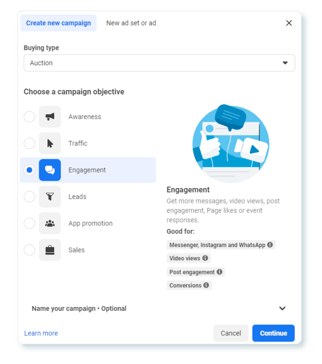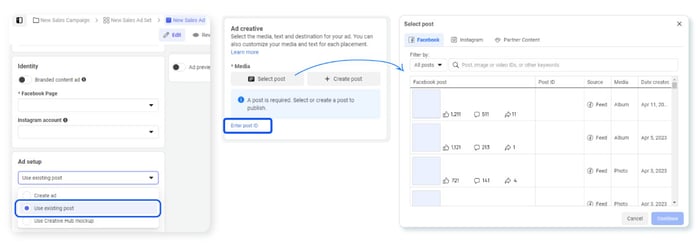
How to Get Social Proof on Facebook Ads
Social proof can make all the difference. Consumers are more likely to engage with a product if they see that others have had a positive experience with it. That's why social proof has become a critical component of many successful marketing campaigns.
But how exactly can you harness the power of social proof on Facebook ads? In this blog post, we'll explore some proven strategies for getting social proof on your Facebook ads.
How to generate more comments
According to a survey conducted by BrightLocal, 91% of consumers aged 18-34 trust online reviews as much as personal recommendations. This indicates that people are more likely to trust social media comments from other users than traditional advertising methods. Additionally, the same study found that 79% of consumers trust customer testimonials as much as personal recommendations, regardless of age group. This highlights the importance of social proof in building trust and credibility with potential customers on Facebook advertising.
1. Run a campaign with the “Engagement objective”
One effective strategy to get more comments is to run a campaign with the engagement objective on ads manager. This type of campaign is designed to encourage people to interact with your ad by liking, commenting, or sharing it.

We understand that your primary objective for Facebook ad campaigns is likely to drive conversions. You can duplicate the existing posts from this campaign and keep the social proof on a new campaign. To learn how to duplicate a Facebook ad while keeping the social proof, you can read our blog post How to Keep Social Proof on Facebook Ads.
2. Create new ads from high-performing page posts
Creating new ads from high-performing organic Facebook posts is a great way to increase the reach of your advertising campaigns. To get started, look for posts on your Facebook page that have received a lot of engagement.
Then, create a new ad using your Facebook Ads Manager account and select the "Use Existing Post" option. Provide the post ID of the high-performing post, and see the ad preview. This will create an ad with the original post's content and engagement.
By doing this, you can benefit from the social proof on your ads and the credibility that comes with it. Ultimately, these Facebook posts with comments can turn into high-performing ads.

3. Use different techniques to drive more comments
In addition to the above strategy, there are several other ways to encourage more comments on your ads:
- Ask a question: Engage with your audience by asking them a question that relates to your product or service. This can encourage users to share their opinions and experiences in the comments.
- Offer an incentive: Consider offering a small incentive, such as a discount code to users who comment on your ad. This can motivate users to engage with your ad and can also help to drive conversions.
- Use video: Video content tends to generate more engagement than static images, so consider using video in your Facebook ads.
- Use ads with user-generated content (UGC).UGC is more authentic and relatable, which can lead to more likes and comments. Ads with UGC had a 300% higher click-through rate, 50% lower cost per click, and 50% lower cost per acquisition compared to ads with brand content, according to a study by NeilPatel.
- Respond to comments: Make sure to respond to all relevant comments on your Facebook ads. This can help to create a space for dialogue and encourage users to engage with your ad.
- Use emojis: Using emojis in your ad can make it stand out and encourage user engagement. In fact, according to a study by Wordstream, using an emoji in a Tweet can help increase engagement by 25%.
- Moderate comments: Monitoring and moderating the comments on your Facebook ads is crucial to ensure relevancy. This creates a better environment for conversations and prevents spam or unwanted comments from taking away from the discussion.
|
Did you know that… If consumers pay more attention to negative comments, they are less likely to trust the brand and share the post? However, if the brand responds to negative comments, it can counteract the negative emotions and reduce their impact on consumer behavior. (Source: University of Valencia) |
Social proof is a powerful tool that can improve your Facebook ad performance by creating a trustworthy experience for your audience. By building credibility and trust with potential customers, you can achieve better results for your ad campaigns.